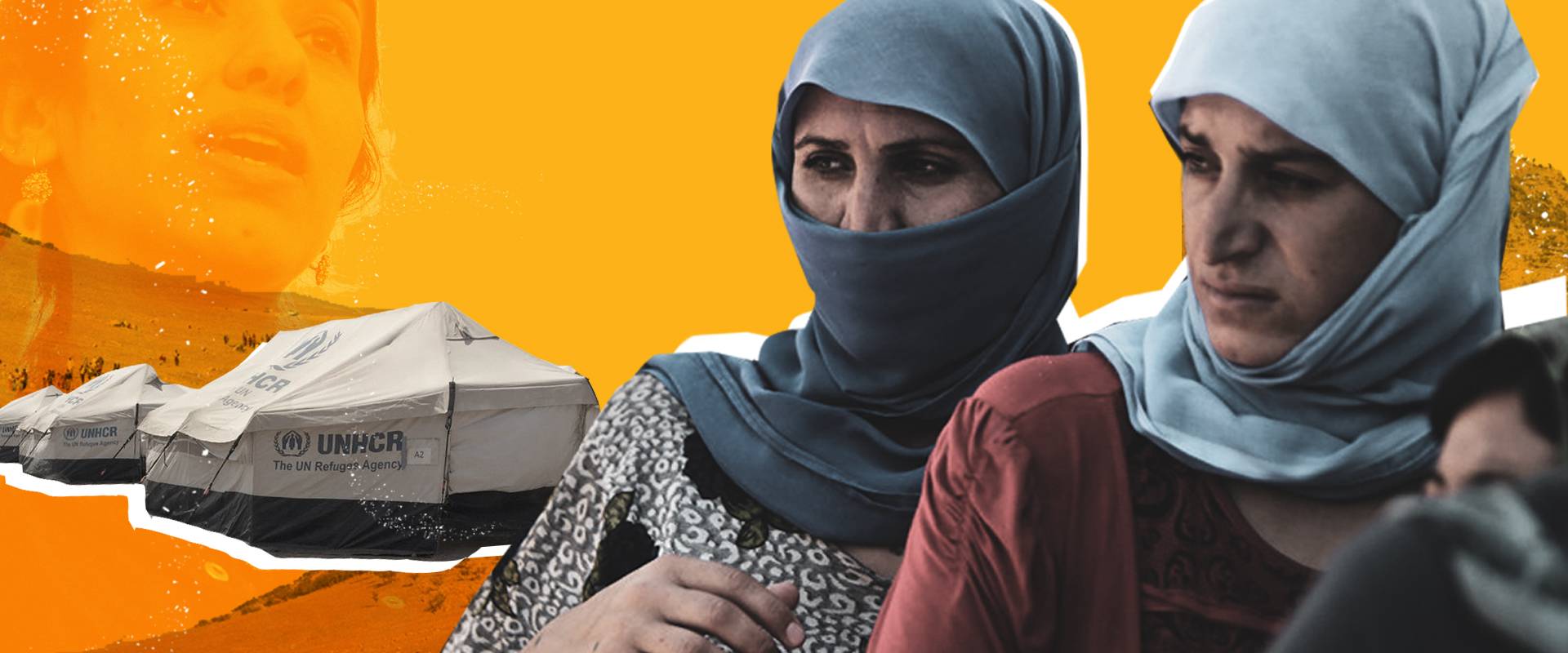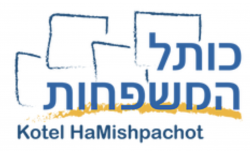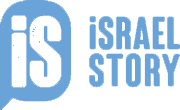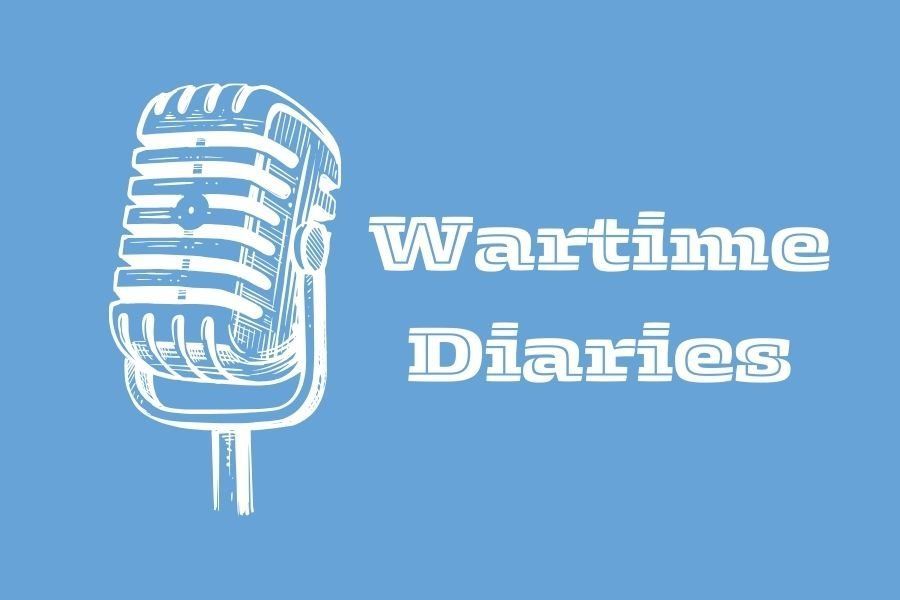By the Rivers of Babylon
- 54:38
- 2019

Jews first arrived in what is today Iraq in the 6th century BC, after the Babylonian king Nebuchadnezzar sacked Solomon’s Temple. It was from there that Ezra and Nehemiah led returning exiles back to Jerusalem. It was there that the Babylonian Talmud was debated, compiled and codified. And it was there, in 1941, that the Farhud – a violent pogrom – left hundreds of Baghdad’s Jews dead and thousands injured.
While there were many different phases in this 2600-year-long history, Jews knew numerous prosperous periods in the ‘land between the two rivers.’ There were Jewish politicians, jurists, doctors, businessmen. There was even a Jewish Miss Baghdad.
Today that community is all but gone.
Prologue: My Heart Is In The East
Mishy Harman talks to Edwin Shuker, whose family fled Baghdad in 1971, about his hopes for a new Golden Age for Iraqi Jews. You can learn more about Edwin’s story in the wonderful documentary film ‘Remember Baghdad.’
Act TranscriptMishy Harman (narration): In August 1971, Edwin Shuker was sixteen years old. And he and his family were on the run.
Edwin Shuker: We were practically hostages. We tried to beg to leave, all we wanted was to live and to survive, but that was not granted until we managed to escape in 1971.
Mishy Harman (narration): See Edwin was born in Baghdad, and three years before they left, a faction of the Pan-Arab Ba’ath Party took power in a bloodless coup. The man appointed to be Iraq’s new Deputy President was thirty-one years old. His name was Saddam Hussein.
By then, of course, most of the country’s once large and prominent Jewish population was long gone. Iraqi Jews were one of the oldest and most important diaspora communities in the world. They first arrived in the sixth century BC, after Nebuchadnezzar, the Babylonian king, sacked Solomon’s Temple. It was from what is today Iraq that Ezra and Nehemiah led returning exiles back to Jerusalem. It was there that the Babylonian Talmud was debated and compiled and codified. And it was there, in 1941, that the Farhud, a violent pogrom, left hundreds of Baghdad’s Jews dead and thousands injured.
For a long time Iraq was a good home for the Jews. In 1917, a quarter to a third of Baghdad’s population was Jewish. Jews were politicians, jurists, doctors, businessmen. There was even a Jewish Miss Baghdad.
But all that changed dramatically with the UN’s partition plan, and the establishment of the State of Israel in 1948. The local Jewish community’s situation worsened. It became clear that their days were numbered. And indeed, the vast majority of Iraq’s Jews immigrated to Israel in the late forties and early fifties.
So by the time Edwin was growing up in the 1960s….
Edwin Shuker: There was only a fraction, something about eight thousand people out of a hundred-and-forty, hundred-and-fifty thousand Jews that once lived and prospered in Iraq.
Mishy Harman (narration): And life was tough for the few who remained. Jews faced legal discrimination. Many were arrested or kidnapped. Some were accused of being Israeli spies and publicly executed.
All over Iraq, their property was seized, their bank accounts were frozen, they were under constant surveillance and had to carry around special yellow identification cards. So before long, even those who had initially chosen to stay, realized that it was now time to go. Quickly and quietly.
Edwin Shuker: You tell absolutely no one, not the closest friends, not your family, not your neighbors, absolutely no one. You just pretend that you’re going out on a shopping spree for a couple hours, you leave lights on in the house, you leave music, and you just go, and hope for the best.
Mishy Harman (narration): The escape route was extremely perilous, and – in some sort of real-life version of a spy movie – relied on an intricate network of collaborators.
Edwin Shuker: Yes. We had a playing card cut into half so we kept half and we showed it as a sign of… from the smugglers that we are the right people on the right time, so that the route doesn’t get infiltrated.
Mishy Harman (narration): Most of the time Edwin and his family didn’t even know where they were going.
Edwin Shuker: We only knew one single step at a time. So all we knew was how to get to the train station in Baghdad, and we didn’t know what’s next. So we stood in train station with forged papers with different names, until some young person, six- seventeen, eighteen years old came and said “oh hi, you know the weather in Mosul is fantastic, if you have a chance to get there you should take every opportunity to do so.” And that was the only clue. You get to Mosul for example, and suddenly there’s a guy who says to you “would you like a taxi?” and you say “no thank you,” and then he says “no, you do want that taxi.” So you know that this is part of the route itself, and on and on until we got to the Kurdish enclave, and then from then on they helped us and assisted us to get out to a little village called Hanna in Iran.
Mishy Harman (narration): Ultimately, the entire family managed to reach the UK, where they were granted asylum. Edwin has lived in England for most of his life, but his heart – as the medieval Jewish poet Yehuda HaLevi said – is in the east. In Iraq.
In 2010, Baghdad’s last rabbi, Emad Levy, left for Israel. Today, there are five Jews remaining in the city. But, as we’ll hear at the end of the show, that doesn’t stop Edwin from imagining a new, golden age for Iraqi Jewry.
Act I: You Cannot Clap With One Hand
Producer Joel Shupack brings us a story of ISIS, of daring escapes, of volunteerism and of the endless limits of the human spirit. Oddly enough, it is also a story of the legacy of the Holocaust. While generations of Israeli high-school students have visited concentration camps and promised – in sincere voices – “never again,” a Jewish grandma from Jerusalem named Lisa Miara made “never again” the guiding principle of her life. It is a tale of one fearless woman who was compelled – because of what happened to her own people less than eighty years ago – to get up and act.
Act TranscriptJoel Shupack (narration): In the Fall of 2015, Lisa Miara – a Jewish grandmother from Jerusalem – found herself on a plane to Erbil, the Kurdish capital in northern Iraq.
And stashed away in her luggage? A bundle of cash that had practically fallen into her lap.
Joel Shupack: Was it in stacks? Was it rolled up?
Lisa Miara: I put it in two or three different envelopes and stuck it in two different bags and walked through.
Joel Shupack (narration): Lisa was born just outside of London, but moved to Israel right after she finished high school, in 1976. She looks a bit like an aging Nordic beauty queen: Slender with pale freckled skin and wispy blonde hair. She’s elegant. Dignified. At the same time, her face is covered with the kind of wrinkles you have to earn. And looking into her faint blue eyes, you can tell they’ve seen more than their share of trouble.
Joel Shupack: So you traveled to Iraq with $20,000 in cash?
Lisa Miara: The international limit is 10,000.
Joel Shupack: Right.
Lisa Miara: Amazingly, nobody stopped me. Nobody asked any questions.
Joel Shupack (narration): The cash was for a man in a refugee camp. He had a plan to rescue women that ISIS had abducted from his village. What he needed most, she was told, was money. And thanks to a combination of dumb luck and her own stubborn determination, Lisa – this unassuming savta – was the only one who could deliver it.
The mountains of northern Iraq have been home to the Yazidi people for centuries. They’re a small, insular and mysterious group. There are just under a million of them worldwide, about half in Iraq. And unlike their neighbors, they’re not Muslim. They have their own religion and traditions. They believe in one God who created the world and left it in the care of seven angels. And they see themselves as the oldest race of people in the world.
Lisa Miara: If you listen to their version they were before Abraham.
Joel Shupack (narration): Much of that long history is one of persecution, oppression or worse. In the summer of 2014, ISIS – or DAESH in Arabic – was terrorizing Iraq and Syria. They singled out the Yazidis because of their different religion and by August of that year, ISIS had reached Yazidi territory.
News Anchor: Thousands of Yazidis are homeless and hungry…
News Anchor: Nearly half-a-million are in refugee camps, hundreds of men disappeared and are feared dead.
News Anchor: ISIS is murdering entire villages.
News Anchor: A campaign of genocide.Lisa Miara: There were villages where within hours, the old women were shot, pushed into mass graves, covered with earth. Men were taken to agricultural areas, also shot and left for dead.
News Anchor: Men were shot one by one and their shallow grave covered in dirt.
Lisa Miara: Easily five thousand, six thousand were killed immediately. Around eight thousand taken into captivity.
Joel Shupack (narration): That’s eight thousand women and children who were taken from their families to become slaves for ISIS.
Lisa Miara: Boys were stripped, examined for pubic hair. If they had any signs of pubic hair, they were taken immediately and recruited into the armies of DAESH.
Joel Shupack (narration): Women and young girls would be bought and sold at markets, as sex slaves. The hundreds of thousands of Yazidis who managed to escape were scattered in refugee camps in Turkey, Syria and Iraq.
Lisa Miara: A full-blown genocide, crimes against humanity, ethnic cleansing.
Joel Shupack (narration): President Obama intervened.
Barack Obama: Countless innocent people are facing a massacre.
Joel Shupack: Authorizing military airdrops of food and water.
Barack Obama: We cannot just look away.
Joel Shupack: But while all this was happening, Lisa Miara was far more concerned with the suffering of her own people. She was living in Jerusalem, where she and her husband had raised their three sons. Her eldest, Assaf, had twice been injured in violent attacks. First, in 1998, as a soldier in Ramallah, and then, three-and-a-half years later, at a cafe suicide bombing in Jerusalem which left eleven Israelis dead. This compelled Lisa to start an organization that used art therapy to support Israeli victims of terror. Through her work, she got in touch with an American tax lawyer, who had left his successful law-firm to work with terror victims. Lisa asked him to represent her son and the two became friends. By 2015, while ISIS was taking over Yazidi villages, Lisa and her husband had divorced and their children were starting families of their own. The bombings and terror of the Second Intifada had largely subsided. So the demand for her organization’s services was, thankfully, in decline.
Lisa Miara: And one day I just got a call out of the blue.
Joel Shupack (narration): It was Gabi Mairone, the American tax lawyer.
Gabi Mairone: Well, I speak with Lisa from time to time.
Joel Shupack (narration): Lisa wasn’t sure of her next professional steps, and was looking for something new to do. And Gabi? He had an intriguing offer.
Gabi Mairone: I did. I suggested she accompany me to Iraq.
Joel Shupack (narration): Gabi, it turned out, was representing Kurdish victims of Sadaam Hussein’s chemical attacks in the late ‘80s. He had been traveling to Iraq pretty regularly.
And since it was, and still is, a country full of humanitarian crises, he wanted Lisa to see it for herself. Perhaps, he hoped, she’d want to get involved.
Gabi Mairone: Yeah, because I think Lisa’s particularly powerful and she’s brave, I tried to recruit her for this mission.
Joel Shupack (narration): Now Iraq and Israel have no diplomatic ties. So Israelis can’t just go there. But Lisa still had a British passport…
Gabi Mairone: And she didn’t flinch at coming to Iraq at a time when we were literally just a couple kilometers from the front line of ISIS.
Lisa Miara: And I find myself suddenly on a plane from Tel Aviv into Amman into Erbil, driving down to the wild west of Kurdistan.
Joel Shupack (narration): When they arrived they were taken to the city of Halabja, to visit a small memorial museum commemorating the victims of the mustard gas attacks of 1988.
Lisa Miara: And suddenly I see all of these pictures.
Joel Shupack (narration): Women and children collapsed on the street. Corpses piled on top of each other. All of them poisoned by gas dropped from the sky. And there, something in Lisa shifted.
Lisa Miara: Because in that minute, I realized there are Muslims, there are other ethnic groups who have suffered and died and are still living under the shadow of death because of gas.
Joel Shupack (narration): For Lisa, just like many other Jews, gas is inextricably linked to the Nazi Holocaust.
Lisa Miara: And it hit me as a Jew – gas doesn’t just belong to us.
Joel Shupack (narration): But this wasn’t the only thing Gabi wanted Lisa to see. On the very last day of their trip, the group drove deeper into Kurdistan, away from this 1980s tragedy and towards one that was still very much unfolding – that of the Yazidis. Six hours north was Sharya, one of the biggest Yazidi refugee camps.
Lisa had heard reports of what the Yazidis had been through, but she was totally unprepared for what she was about to witness.
After a long drive, they arrived at the camp – a vast field at the foot of a mountain range.
Lisa Miara: And just nothing on the horizon but these tents.
Joel Shupack (narration): Row after row after row of white UN standard-issue canvas tents.
Lisa Miara: Tents were just on the gravel with about a meter-and-a-half in between.
Joel Shupack (narration): This was now home to twenty-thousand Yazidis.
Lisa Miara: The kids are barefoot. An old sock with a rock in it for a football.
Joel Shupack (narration): They spent a few hours going from tent to tent, hearing stories and sharing tea.
Lisa Miara: These people had nothing, and yet in every tent, chai and water and food from nowhere appeared. They were still in that total shock of having had family, there’s no family. Having had houses? No houses. Cars? No cars. Businesses, land, sheep, goats – they’re now sitting on a mattress with nothing but pictures of the dead or the missing. And it was just so so raw.
Joel Shupack (narration): She remembers one man in particular.
Lisa Miara: Abu Majid.
Joel Shupack (narration): Abu Majid.
Lisa Miara: And in his tent, he had this very tatty, battered briefcase. That was all he had. And he took out six pictures and he held them like he was holding a stack of cards: His wife and his five kids.
Joel Shupack (narration): His entire family had been taken by ISIS. And now, in an empty tent, all he could do was hold up their pictures and wail.
Lisa Miara: The scream, the agony, it killed me. It killed me. And we got back into the car and we drove in silence. Flew back to Tel Aviv in silence. Drove back to Jerusalem in silence and I literally locked myself in this house for one month.
Joel Shupack (narration): Lisa had no idea how to talk about what she had seen. To be back in Jerusalem with the world buzzing around her, with people complaining about the price of soy cappuccinos or laughing on street corners – none of it made any sense after being in Sharya.
Lisa Miara: How is this happening, and the world hasn’t stopped on its axis? How is life going on?
Joel Shupack (narration): She felt utterly disconnected from her own life. And at the same time, she had no idea how to help the Yazidi refugees. She slipped into a kind of paralysis. It was hard enough just to feed herself.
Lisa Miara: Get some yogurt, get some lemons, get a bottle of wine and that was like my existence for that month. I just had no ability to communicate.
Joel Shupack (narration): The only people she felt she could talk to, the only ones who could understand her turmoil were the handful of Yazidi contacts she had made. One was a man named Khalil.
Khalil Al-Dhaki: My name is Khalil Al-Dhaki. Al-Dhaki is my nickname.
Joel Shupack (narration): A thirty-nine-year-old lawyer living at Sharya camp. I spoke to him via WhatsApp with the help of a translator. Khalil, his wife, and their young daughter were among the lucky ones. They managed to escape when ISIS invaded their town. But many in their extended family were still missing.
Khalil Al-Dhaki: Eighty-four people were taken by ISIS.
Joel Shupack (narration): And he was trying to figure out how to free them. If he wasn’t able to find his own family members, he would rescue anyone he could.
Lisa Miara: He was beginning to organize rescues. Military-like, strategic rescue operations.
Joel Shupack (narration): His plan was to kidnap the Yazidi women and children back from ISIS and return them to their families. But Khalil wasn’t some special forces operative. He was just a… lawyer.
Khalil Al-Dhaki: We were compelled to do this, to rescue the… our people from the ISIS.
Joel Shupack (narration): Crossing into ISIS territory was too dangerous, especially for a Yazidi. But he knew people who were already there. Muslims who had no allegiance to ISIS but were suddenly living under their oppressive rule. Using those connections, Khalil was able to set up a secret network of safe houses and smugglers who were willing to help. It was an incredibly risky plan. And an expensive one. Everyone involved, of course, had to be paid off.
Sitting in her home in Jerusalem, Lisa heard Khalil describe these daring operations. He told her that each one of these missions cost around three thousand US dollars. Suddenly, she began to feel a little less powerless. There was a way she could help. All she needed was money.
After a month of hiding from the world, speaking to almost no one but Khalil, Lisa was finally ready to talk about what she had seen. She met a good friend at a café in the heart of Jerusalem.
Lisa Miara: Betzalel Café on Betzalel.
Joel Shupack (narration): And Lisa told her everything.
Lisa Miara: About these rescues and about the Yazidi women and so on.
Joel Shupack (narration): Her friend was moved, and shocked. But she… wasn’t the only one listening. A man at the next table over seemed to be eavesdropping.
Lisa Miara: I remember he was bald, I remember he had glasses and I remember he was quite thin and wiry. And in a very typical Israeli fashion, the guy at the table, he began to shift his chair, until basically the guy’s sitting on my lap, you know, at which point, “challas man, you know, do you want something?” He said, “yes, a business card.” That was a Friday morning.
Joel Shupack (narration): The next evening, as soon as Shabbat was over, he called.
Lisa Miara: He said, “look we had dinner as a family last night.”
Joel Shupack (narration): He had repeated everything he overheard at the café to his mother-in-law, an Auschwitz survivor. And she? She had a question that was about to turn Lisa’s life upside down.
Lisa Miara: She wants to know how much will it cost for the rescue operation? And I said it cost $3,000. He said, “you’ve got it.” We met at Café Betzalel, 9am on Sunday morning. He gave me an envelope and was gone and inside it were $3,000.
Joel Shupack (narration): But that wasn’t all. See, the mother-in-law had told some of her friends, other Holocaust survivors. And…
Lisa Miara: Within a period of I think no more than ten days, I had $20,000. So good little Jerusalem girl I march to Western Union…
Joel Shupack: You’re holding the cash at this point.
Lisa Miara: Yes. Yeah, a whole bagful that I’m holding onto for dear life, you know. Wait for hours in line, dump it on the table. “I need to send this to Iraq.”
Joel Shupack (narration): The surprised clerk just stared at Lisa.
Lisa Miara: And I think she didn’t know whether to arrest me or send me off to a mental institution. She said, “number one, the international limit is $500 a day. Number two has no one told you that Iraq is an enemy country of Israel?” And then sort of [claps her hands] “get away from me before I get tainted.”
Joel Shupack (narration): Lisa understood there was really only one way for her to get that money to Iraq.
Lisa Miara: I texted Khalil and I said ‘I’m coming.’
Joel Shupack (narration): Now, I know it might sound crazy that someone – especially an Israeli – could just up and go to Iraq in 2014. But there were actually many NGOs and foreign aid workers coming into Kurdistan at the time. So Lisa, with her bonafide non-profit credentials made her way back to Iraq with the $20,000. It would be enough money, she hoped, to pay for seven rescue operations. Her plan was to deliver the cash, stay with Khalil’s family for two weeks, and see as many of the rescues as she could firsthand. She hired a driver who took her to Sharya where she met Khalil.
Joel Shupack: What does he look like?
Lisa Miara: Tall, thin, mostly unshaven. When a smile comes on his face, it’s like you’ve been digging, digging, digging and you’ve suddenly hit gold.
Joel Shupack (narration): Khalil explained the intricate planning behind the operations. The first step was, of course, figuring out exactly where the women were being held. And Khalil had to do this from a refugee camp dozens of kilometers away. His team of smugglers tried all sorts of creative ways to get phones into the hands of the captured women. Like…
Lisa Miara: SIM cards inside loaves of bread.
Joel Shupack (narration): The idea was that the women would use the smuggled phones to help Khalil pinpoint their exact location. Many of them had been taken to Mosul, a city about an hour-and-a-half away, which Khalil knew well. Others were in his hometown of Tel Afar.
Lisa Miara: Khalil knew Tel Afar like the back of his hand. He literally made like out of balsa wood or plywood a model of Tel Afar.
Joel Shupack (narration): Using his homemade model and Google Earth, he would ask the women a series of questions.
Lisa Miara: ‘Where did the sun rise?’ ‘What floor were you on?’ ‘How many steps between floors?’ ‘How many entrances to the building?’ ‘When you would hear the call to prayer, from which direction did it come?’ ‘What did you smell at this window?’ All of these kinds of things.
Khalil Al-Dhaki: She would give me a pieces of information, geographic information that I could then look on the Google and through my experience, could locate where she was.
Lisa Miara: It’s like putting a puzzle together. You’ll see him mostly sitting cross-legged in a tent drinking chai after chai after chai and scribbling notes and drawing pictures and getting out his cell phone and checking Google Maps and that’s how he works. He calls himself ‘Mr. Chai by Chai’ because the more strong Iraqi tea he drinks the more his brain wakes up.
Joel Shupack (narration): As you can imagine, no two rescues were alike.
Khalil Al-Dhaki: It’s a very dangerous and risky mission on many different levels. It’s risky on the girls’ life, it’s risky for us. We couldn’t just rescue them without any creative ways that we could ensure the safety of everyone involved.
Joel Shupack (narration): Like this one he told me about. A Yazidi woman was enslaved by an ISIS fighter who was actually kind of a gym rat. But he would only work out after eating a specific, protein-rich, Iraqi dish.
Khalil Al-Dhaki: So we told her to cook that meal for him so he can eat and go for his exercise.
Joel Shupack (narration): That gave them a window of opportunity during which they could sneak her out of the building.
Khalil Al-Dhaki: Each one of them that I saved or rescued, has its own story to the whole rescue mission. So if I tell you all about all of their stories, we will need a lot of time to sit here and talk about all the tricks that we used [laughs].
Joel Shupack (narration): But even if the specifics of each operation varied, the general idea was the same – get the women to safe-houses and then smuggle them out of ISIS-controlled territory. Often this meant walking through the mountains for days.
Some missions failed. Occasionally, the women had to call them off at the very last minute when they realized their captors had found out and were ready to ambush the smugglers.
Lisa Miara: You’re not talking about military guys who have been ops in their life. Some of them are just shepards.
Joel Shupack (narration): And indeed there were smugglers who were caught, then brutally tortured and executed.
After observing all the careful preparations, and understanding everything that could go wrong, Lisa handed over enough cash for the next mission.
Lisa Miara: A young girl of seventeen called Maha. Khalil had planned her escape. Planned the safe houses, planned the cars.
Joel Shupack (narration): He took Lisa with him to the remote meet-up spot where the smuggler was supposed to bring Maha.
Lisa Miara: We were waiting for several days in incredible suspense.
Joel Shupack (narration): They didn’t know what would come next. Khalil was nervous.
Lisa Miara: He’s a chain smoker. And it was just the silence and the chain-smoking. And then a man appeared on the horizon walking with her. It was hugs and it was, incredible relief. Incredible joy.
Joel Shupack (narration): Lisa had witnessed her first rescue. And it was moving. The envelopes of cash that Holocaust survivors in Jerusalem had given her, and that she had schlepped all the way to Iraq were actually making a difference. They were literally saving lives.
Over the next few months, Lisa went back and forth between Israel and Iraq. In Jerusalem she’d try to raise more money, which she would then bring back to Sharya to fund rescue operations.
Lisa’s close friends in Israel were worried. Many even started to pull away. She says they were scared to be connected with someone actively working against ISIS.
But this didn’t stop her.
Lisa was spending more and more time in Iraq. And she quickly began to adjust to Sharya’s pace and rhythm. In the mornings, old women would gather at the washing taps.
Lisa Miara: Like an old-fashioned village well, and they’re out there pounding their blankets and then you’ll hear the ‘slop’ of these blankets. You’ve got a group of old guys, they play cards from 9am till 12. They break on the dot of twelve for their shingale lunch of chicken. As soon as dusk hits the whole atmosphere changes, there’s no more busyness. Everyone is inside their tent and that is when you hear the… the sobs of the women.
Joel Shupack (narration): On paper, at least, her trips were “official business” on behalf of her Jerusalem-based non-profit, meant to help Israeli terror victims. But it was clear that her priorities were rapidly shifting. And she soon understood that rescuing women and children and reuniting them with their families was only the beginning.
Lisa Miara: We would meet women who were coming out wearing the black clothes of DAESH, of ISIS. Clothes that she’s worn for a year and has been raped in. It’s never been washed. Let’s take these clothes off and buy them clothes. Let’s see what they need medically.
Joel Shupack (narration): As Lisa spoke to the women returning from captivity, she heard tales of horrendous physical and sexual abuse. And, of course, there was the brainwashing.
Lisa Miara: First of all, they have a period of intense indoctrination and sleep deprivation, where they learn the five pillars of Islam. They learn to recite the Quran off by heart. Their names are changed, told that their families are infidels.
Joel Shupack (narration): For some of those returning, especially the children, this was hard to shake. Lisa told me about one boy.
Lisa Miara: Who likes to kick a football around, walks around with his teddy bear, still saying eight months post-return, “I believe in the ways and the methodology of ISIS.” What do you do with that?
Joel Shupack (narration): Lisa, who had spent years dealing with survivors of terror attacks in Israel, was often at a loss. And it wasn’t just the way victims sometimes identified with their captors. Many of those whose rescue she had financed, didn’t even have the basics. Like shoes or a change of clothes, or medicine. So she used the donations she brought from Israel to pay for that as well.
Khalil Al-Dhaki: Lisa was very special. We have a saying that says, ‘you cannot clap with one hand.’ So I would consider Lisa our second hand. That we could clap together.
Joel Shupack (narration): She also helped fund other rescue teams, not just Khalil’s. Lisa had become an unlikely champion for the Yazidis of Sharya camp. But then something happened that made her stop in place, and rethink all of it.
See, the outside money she brought in wasn’t the only way rescues were being funded. Some Yazidi families had managed to pool together enough cash to pay the rescue teams directly. And one day Lisa visited one of those families.
Lisa Miara: And they were talking about the amount of money that they had paid for rescue. And it was substantially less than what we had given.
Joel Shupack (narration): Apparently the money that her donors had been paying for rescues didn’t all end up where it was supposed to.
Lisa Miara: We realized there was a major discrepancy here.
Joel Shupack: Where was the extra money going, do you have any idea about it?
Lisa Miara: Well… People have made money in genocide. We tried to bring this particular rescuer to accountability. By saying “yes, you have nothing. Yes, you live in a tent. Yes, you’re setting up safe houses. Yes, you have people that you need to pay. So let’s sit and work out how much a rescue costs and we’ll authorize it.” But we were getting, “I don’t take anything ma’am. I don’t take one cent.”
Joel Shupack (narration): Lisa wouldn’t say whether that rescuer was Khalil or someone else. Either way, it’s clear that this was a turning point for her. She had trusted someone and given to him generously. Now, she saw he had been taking advantage of her. And ultimately, it wasn’t just about her.
Lisa Miara: This is other people’s money. We’ve got to be accountable here.
Joel Shupack (narration): But she also knew that the same person ripping off her donors was himself just trying to survive. Even so, something had to change. She was a foreigner, she didn’t speak the language and ferrying cash over from Israel was obviously not a viable long-term solution.
Lisa Miara: I’m out of my depth. What the heck do we do?
Joel Shupack (narration): Many other people would have probably just walked away at this point. Feeling cheated and stung, it would have been much easier to leave this messy situation behind and go back home to comfortable Jerusalem, knowing she’d done the best she possibly could. Thanks to her, young women were freed from their violent captors and were now reunited with their families. But for Lisa, that wasn’t an option. There was still so much suffering all around her. And she felt she could do more.
Lisa Miara: This is the level now of are we committed ke’ilu ad ha’sof, however much time this will take or do I pull back? And I couldn’t pull back.
Joel Shupack (narration): Lisa decided to double down.
Lisa Miara: So you walk from this sunken piece of parking lot, across sewage, past chickens, past a sheep, past some things that looks a cross between a turkey and a duck into my house which is two floors and a roof.
Joel Shupack (narration): It’s been four years since Lisa first visited Sharya.
Lisa Miara: In the summer you sleep out on the roof, as does everybody. So you’re lying up on the roof which is a bit cooler, listening to the whole of the village snore. [Laughter].
Joel Shupack (narration): And now this is her home.
Lisa Miara: The chickens start at 4am, the sheep start at 5am. And from the roof I look and it’s the camp in the shadow of these mountains.
Joel Shupack (narration): After discovering the monetary discrepancy, and after thinking about its root causes, Lisa decided to go all in. Together with local Yazidi leaders she started an NGO. It’s called the ‘Springs of Hope Foundation.’ It doesn’t fund rescues, which have – with time – become increasingly difficult. But it has, instead, opened the ‘Hope Center’ – part clinic, part school, part community center.
Lisa Miara: I’d like you just to tell us something about today. Anything you want to say.
Yazidi Student: I like this day. It is a beautiful and amazing.
Lisa Miara: You painted today?
Yazidi Student: Yes.
Lisa Miara: What did you paint?
Yazidi Student: I paint… [goes under].
Joel Shupack (narration): A place for the women and children of Sharya to learn, to play and to heal. Lisa recorded a recent graduation ceremony for some of the students at the center.
Lisa Miara: [Laughter]. And now the kids are all spread out. We’ve got one group of boys that are busting balloons and eating cake and juice.
Joel Shupack (narration): All the staff and volunteers are Yazidi. There’s a doctor, a counselor, English classes, Kurdish classes. There are art supplies and musical instruments.
Lisa Miara: Gardens, fruit trees, veggies that the kids grow and eat for lunch.
Joel Shupack (narration): And not too far away is Lisa’s house.
Lisa Miara: It’s hard for me to admit it, but I’m close to 80% and when I say close, I’m 80% of my time there. I have a dog there for goodness sake, Oscar.
Joel Shupack: Really?
Lisa Miara: Yes!
Joel Shupack (narration): That’s not to say that the transition has been easy.
Lisa Miara: I mean this was way beyond my comfort zone, way beyond my knowledge, way beyond my imagination, that I (who I love my espresso in the morning and glass wine in the evening, and things to be in place and clean). I mean, all the summer, sandstorms, cockroaches, scorpions, little frogs. I would have never ever in my worst nightmare dreamt that I’d be living in that.
Joel Shupack (narration): And neither, quite frankly, would her family. Her dog Oscar may be in Iraq, but her children and grandkids are all back in Israel.
Lisa Miara: It’s hard. It’s a sacrifice all around. When I’m there I miss them. With all of the WhatsApp and the Zoom and the Schmoom and whatever, we do our best to make up for it.
Joel Shupack: Are they surprised that you’re living in these conditions?
Lisa Miara: They’re shocked. I think they don’t know the half either and they don’t need to know the half.
[Laughter]
Joel Shupack (narration): A ten minute drive from Lisa’s new home in Sharya, are the remains of an old synagogue. There was a Jewish community there until 1948. And inside the building is the tomb of an Old Testament prophet, Nahum. A minor prophet, but even so.
Lisa Miara: You walk into this place that is just crumbling stone with the tomb in the middle, with all of the green and the red cloth tied on it Kurdish and Yazidi style that you tie some cloth and you make a wish.
Joel Shupack (narration): Nahum lived over two-thousand-six-hundred years ago. At a time when his people, like the Yazidis, were driven from their homes. And he prophesied the fall of the wicked empire that put them into exile.
Lisa Miara: And then on the walls around there’s marble plaques that are so worn away by the course of time and the weather. But you can see im eshkachech et Yerushalayim – ‘if I forget Jerusalem, let my right hand forget its cunning.’ I mean it is… it’s incredible. Every Friday afternoon I go over, I see Nahum. I have a chat with him about what’s going on, do a le’chaim and come back.
Joel Shupack (narration): Back home to Sharya, where Oscar the dog chases cockroaches around in the evenings, and where – on hot summer nights – she sleeps on the roof underneath the stars.
And the old prophet? As Shabbat comes in on this ancient land that has seen countless civilizations come and go, Nahum is left alone on the plains of Nineveh. Left in disbelief that even after more than two-and-a-half millennia, there are still tyrants and refugees and wicked empires.
Joel Shupack: Are there are there times when you feel like what you’re doing is not enough.
Lisa Miara: Oh, all the time. But there are holes in this universe and if we can contribute to filling in one hole, dayenu. It’s a drop in a bucket but it is a drop.
Credits
Ari Jacob wrote the original music in You Cannot Clap With One Hand. Joel Shupack arranged the music for the rest of the episode, and for parts of Act I, with music from Blue Dot Sessions. Hussein Ibrahim provided translation, and special thanks to Pari Ibrahim and Edward Watts.
Shai Satran and Mishy Harman edited the episode, and Sela Waisblum mixed it all up. It was recorded in Jonathan Friedlander’s ‘Quality Sound Studio’ in Jerusalem. The end song is a new cover version we commissioned of The Melodians’ “Rivers of Babylon.” It was recorded, arranged and performed by Shay Perry.
Sponsors
 The Jerusalem Portfolio is a professionally managed investment portfolio of Israeli-focused public companies listed on the Tel Aviv, US and London stock exchanges. Learn more about how you can invest in the Israeli innovation, creativity and vision that made the desert bloom!
The Jerusalem Portfolio is a professionally managed investment portfolio of Israeli-focused public companies listed on the Tel Aviv, US and London stock exchanges. Learn more about how you can invest in the Israeli innovation, creativity and vision that made the desert bloom!
The first ten Israel Story listeners who sign up will receive a free $50 to invest. Use promo code ‘Israel Story’ when signing up. Kotel HaMishpachot is the the Egalitarian Kotel. You and your family are welcome to attend a beautiful Kabbalat Shabbat service at Robinson’s Arch, on the southern end of the Kotel. Services take place at 6pm during the summer and 4pm during the winter.
Kotel HaMishpachot is the the Egalitarian Kotel. You and your family are welcome to attend a beautiful Kabbalat Shabbat service at Robinson’s Arch, on the southern end of the Kotel. Services take place at 6pm during the summer and 4pm during the winter. Skilled Volunteers for Israel is a U.S. based organization that places active Jewish adults and retirees from around the world as volunteers in Israel’s vibrant nonprofit sector. Learn more about how their programs match folks based on their unique capabilities in a wide range of nonprofits. Mention ‘Israel Story’ to receive a discount on the volunteer placement fee.
Skilled Volunteers for Israel is a U.S. based organization that places active Jewish adults and retirees from around the world as volunteers in Israel’s vibrant nonprofit sector. Learn more about how their programs match folks based on their unique capabilities in a wide range of nonprofits. Mention ‘Israel Story’ to receive a discount on the volunteer placement fee. The Branch is a wonderful podcast that tells stories of everyday relationships between Israelis and Palestinians, Jews and Arabs, brought to you by Hadassah. Dina Kraft, their fabulous host, talks to regular people forging strong connections and having important, and often complicated, conversations about coexistence.
The Branch is a wonderful podcast that tells stories of everyday relationships between Israelis and Palestinians, Jews and Arabs, brought to you by Hadassah. Dina Kraft, their fabulous host, talks to regular people forging strong connections and having important, and often complicated, conversations about coexistence.

 Wartime Diaries
Wartime Diaries

